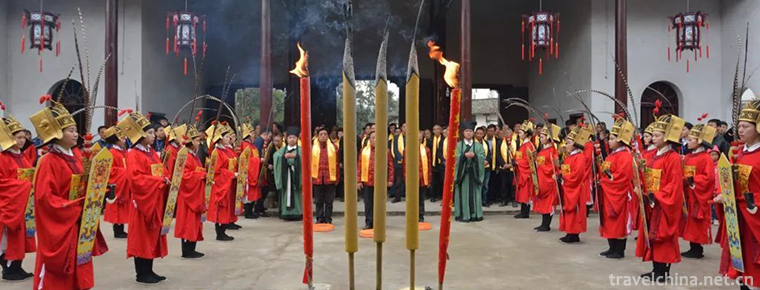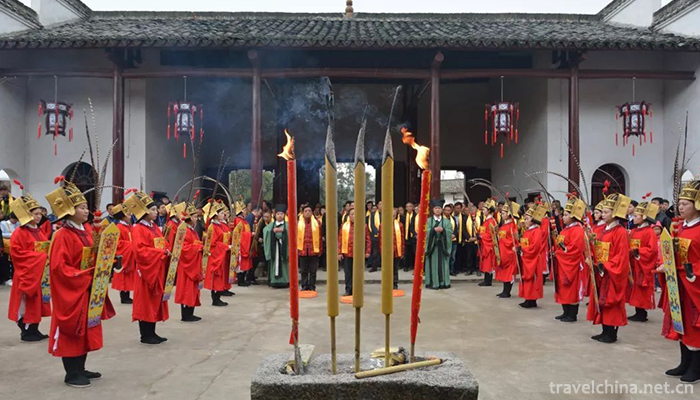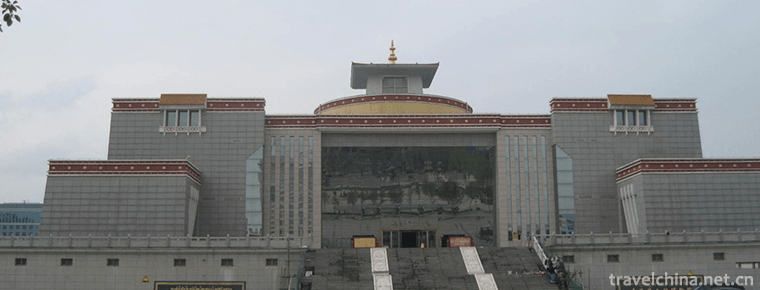2019-02-07

- By ChinaWiki.net
- Chinese Edition
- 2019-05-14
Music of Confucius Festival in Liuyang Temple
The ancient music of offering sacrifices to Confucius in Liuyang Temple is a traditional folk music in Hunan Province. A list of the second batch of intangible cultural heritage in Hunan Province has been published recently. The "Liuyang Temple for Confucius and Ancient Music" declared by Liuyang City is listed in the category of "folk music".
In 2007, Liuyang City compiled and printed Liuyang intangible cultural heritage series, including Liuyang Ancient Music. According to Pan Xinzhi, the editor-in-chief, Liuyang ancient music was developed by Qiu Zhizhen, an ancient musician of Liuyang, in the ninth year of Qingdaoguang (1829 AD), in accordance with the ancient law. It included music, dance, song and ritual. The performance was very grand. Therefore, music is used in the sacrifice of Confucian temples, so it is called "Confucian ancient music sacrificed by Confucian temples". Liuyang Ancient Music was once known all over the world as "the only thing left in the whole country", especially in the late Qing Dynasty and the early Republic of China. In 1937, Professor Zhang Minjun of Hunan University wrote "The Ancient Rites of National Music in Liuyang" after Liu Guanli, which was published ten years later, reflecting the grand ceremony of sacrificing Confucius at that time.

Ask a Question
Your email address will not be published.


0 Questions